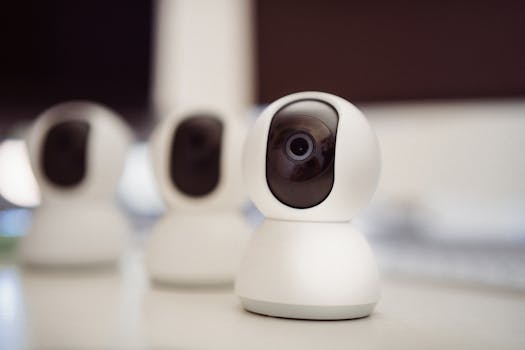
The Rise of Smart Home Devices: 2025 Trends and Innovations
Takeaways: The smart home industry is set to experience significant growth and innovation by 2025, driven by IoT advancements, artificial intelligence integration, and a focus on sustainability. Homeowners can expect enhanced convenience, security, and energy efficiency from their devices.
As we step into 2025, the landscape of smart home devices is evolving at an unprecedented pace. From connected appliances to sophisticated security systems, homeowners are increasingly embracing technology to enhance their living environments. In this article, we will delve into the major trends and innovations shaping the smart home market, exploring how they will impact our daily lives.
The Impact of IoT on Smart Home Devices
The Internet of Things (IoT) is at the heart of the smart home revolution. By 2025, we can expect a surge in the number of devices connected to the internet, enabling seamless communication and interaction between them. Smart home ecosystems, consisting of various devices such as smart speakers, thermostats, lights, and security cameras, will work together more efficiently than ever before.
One of the most significant trends in IoT is the rise of interoperability. Manufacturers are increasingly focusing on creating devices that can communicate with one another, regardless of brand. This means that homeowners will have the flexibility to mix and match their smart devices, creating a personalized and cohesive smart home experience.
Moreover, the integration of AI with IoT is set to revolutionize how these devices operate. Artificial intelligence will allow smart home systems to learn from user behavior, adapting and optimizing their functions for improved performance. For instance, smart thermostats can learn a homeowner’s schedule and preferences, automatically adjusting the temperature for maximum comfort and energy efficiency.
Advancements in Security and Privacy
As smart home devices become more prevalent, concerns about security and privacy are also on the rise. By 2025, we can anticipate significant advancements in security features for smart home devices. Manufacturers are investing heavily in developing robust security protocols to protect users from potential cyber threats.
One trend that is gaining traction is the use of biometric authentication for smart home devices. Facial recognition, fingerprint scanning, and voice recognition will provide an additional layer of security, ensuring that only authorized users can access smart home systems. This technology will not only enhance security but also improve user convenience.
Privacy is another critical concern for homeowners. As smart devices collect vast amounts of data to function effectively, ensuring this data is handled responsibly will be paramount. Companies will need to adopt transparent data practices, giving users control over their information and how it is used. Expect to see more stringent regulations and standards in the smart home industry to protect consumer privacy.
Sustainability and Energy Efficiency
With an increasing focus on sustainability, smart home devices are evolving to help homeowners reduce their carbon footprint. By 2025, we will see a broader array of energy-efficient devices designed to optimize energy consumption. Smart thermostats, for example, will not only learn user preferences but also consider factors like weather forecasts and energy pricing to adjust heating and cooling systems accordingly.
Moreover, the integration of renewable energy sources, such as solar panels, with smart home devices will become more common. Homeowners will have the capability to monitor their energy production and consumption in real-time, enabling them to make informed decisions about their energy usage. This shift towards sustainable solutions will not only benefit the environment but also lead to significant cost savings for consumers.
In addition, smart irrigation systems will gain popularity in residential landscaping. These systems will utilize weather data and soil moisture levels to optimize water usage, promoting sustainable gardening practices.
The Future of Smart Home Technology
As we look ahead to 2025, the smart home industry is poised for remarkable growth and innovation. The integration of IoT and AI will create a more interconnected and intelligent ecosystem, enhancing convenience, security, and sustainability for homeowners.
With the rising demand for smart home solutions, we can expect to see continued investment in research and development from both established tech companies and startups. The future of smart home technology is bright, and it promises to make our lives easier and more efficient.






